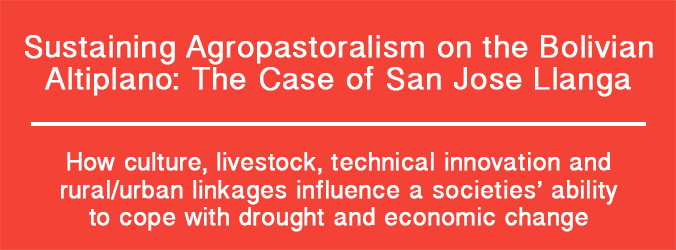
Files
Download Full Text (658 KB)
Description
The first objective of work presented in this chapter was to examine if households at SJL indeed pursued different economic strategies. For example, would some households rely more on crops, livestock, wage labour or various mixtures of these enterprises, and why? The second objective was to determine how different economic strategies influenced household sustainability, namely the ability to generate wealth, be opportunistic and cope with drought. In particular, I was interested in the role of livestock (especially small ruminants), off-farm employment and income transfers in mitigating fluctuations in household income (Rosenzweig and Wolpin 1985; Kusterer 1989; Fafchamps 1992; Reardon et al 1992; Webb 1992; Fafchamps et al 1998). Households that rely on food crop production could be expected to suffer marked declines in income due to drought since crop yields would be reduced. Having livestock, wage labour, and/or options for income transfers would be important to maintain income and hence enhance food security in a drought year. A mix of enterprises, also referred to as a diversified portfolio, has been found important elsewhere in promoting food security and sustainability among peasant households in variable environments (Cotlear 1989; Kusterer 1989; von Braun et al 1989; Reardon et al 1992). Some researchers have found that as income increases the level of diversification decreases, especially with well-developed markets (von Braun et al 1989). Others have found diversification and income growth go hand-in-hand to fully utilize resources (Ellis 1993) and/or because markets are unreliable (Fafchamps 1992). In the southern Andean region of Peru diversification grew with commercialisation (Cotlear 1989).
Publication Date
2001
Recommended Citation
Valdivia, Corinne, "Chapter 06: Household Socioeconomic Diversity and Coping Response to a Drought Year at San José Llanga" (2001). Sustaining Agropastoralism on the Bolivian Altiplano: The Case of San José Llanga. 5.
https://digitalcommons.usu.edu/sustaining_agropastoralism/5


